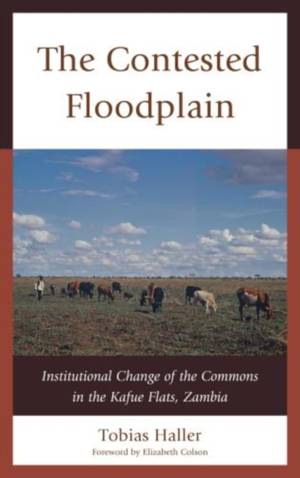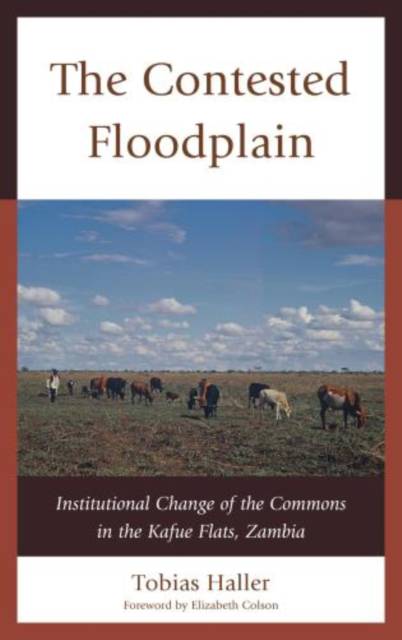
- Afhalen na 1 uur in een winkel met voorraad
- Gratis thuislevering in België vanaf € 30
- Ruim aanbod met 7 miljoen producten
- Afhalen na 1 uur in een winkel met voorraad
- Gratis thuislevering in België vanaf € 30
- Ruim aanbod met 7 miljoen producten
Zoeken
The Contested Floodplain
Institutional Change of the Commons in the Kafue Flats, Zambia
Tobias Haller
Hardcover | Engels
€ 329,45
+ 658 punten
Omschrijving
The Contested Floodplain explains how institutional change in the African floodplain wetlands of Zambia (Kafue Flats) caused the area's resource management to fail. This work combines New Institutionalism approaches (predicated on notions of power and ideology) with political ecology and findings from local ecological studies, extending its appeal to scholars in African and environmental studies. It includes an in-depth social anthropological analysis of agro-pastoral and fishermen communities and also a foreword by Dr. Elizabeth Colson.
Specificaties
Betrokkenen
- Auteur(s):
- Uitgeverij:
Inhoud
- Aantal bladzijden:
- 576
- Taal:
- Engels
Eigenschappen
- Productcode (EAN):
- 9780739169568
- Verschijningsdatum:
- 27/12/2012
- Uitvoering:
- Hardcover
- Formaat:
- Genaaid
- Afmetingen:
- 155 mm x 231 mm
- Gewicht:
- 1111 g

Alleen bij Standaard Boekhandel
+ 658 punten op je klantenkaart van Standaard Boekhandel
Beoordelingen
We publiceren alleen reviews die voldoen aan de voorwaarden voor reviews. Bekijk onze voorwaarden voor reviews.











